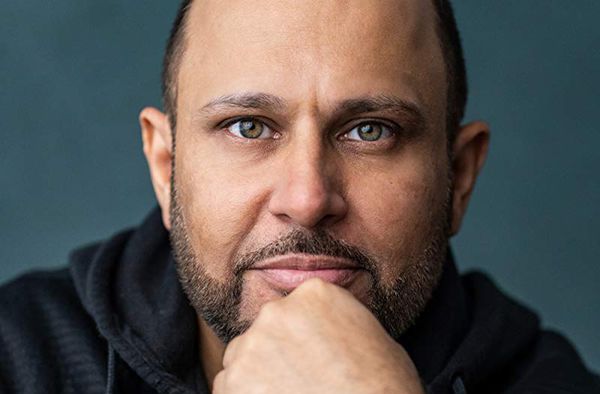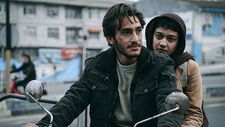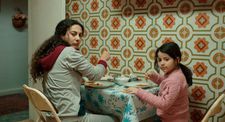 |
| Sajid Varda |
The first ever Muslim International Film Festival opens its doors in London on Thursday 30 May, and its director, Sajid Varda, has been speaking to Eye For Film about his hope that it can begin to break down prejudice and show other people that Muslims are not so different from them.
Having started out as an actor, Varda reflected that the sort of roles he was offered changed drastically after 9/11, and that suddenly there were negative portrayals of Muslims everywhere. "That became a real frustration for our community, not just in this country, but around the world," he said. "When we see ourselves portrayed on screen, it's never ever in a complimentary manner, it's never authentic and it's never really from our perspective. It's always from somebody else's lens. It has been a real frustration for us, those eye rolling moments. There's four key tropes: Muslims are terrorists, Muslim men are misogynists, Muslim women are oppressed, and Islam is a threat to the West."
 |
| Empty Nets Photo: Courtesy of KVIFF |
In response to this, he set up a charity called UK Muslim Film, which has spent the last three years trying to educate people and improve representations. It was party inspired by his experience of starring in Lewis Rose's multi-award-winning The Chop in 2016 - a short film which portrayed members of Muslim and Jewish communities getting along together. As he travelled the film festival circuit with it, he saw other good films with Muslim characters, but realised that most of them would remain invisible to the general public. That was also when he decided that a specific festival was needed, to help Muslims reclaim their identity and celebrate it.
The festival has simple rules. Films don't necessarily have to be made by Muslims, but they have to portray some aspect of Muslim experience in an authentic way, and they have to be free of violence, sexual themes and nudity, none of which, he points out, are necessary to tell a good story. This means that anybody should feel confident about going to watch them. The line-up he has managed to put together is really impressive, featuring some of the strongest films on the festival circuit this year, and he puts this down to the eager response of filmmakers who agreed with him that such a festival was long overdue. He's also grateful for the support he's had from the likes of the BFI, Channel 4 and BAFTA.
He has found that there's a lot of goodwill towards the project from the public as well. "This has been in the works for over a year now, but with what's going on in the Middle East, I think people have felt sincerely apologetic for not understanding. There is a huge amount of goodwill and love and understanding towards the Palestinian people. I believe it is apparent now that for so long, Muslims, Arabs, those who do not look a certain way, are treated as second class citizens. So this festival has come at a time where people are desperate to learn, they're desperate to understand and to connect.
 |
| Inshallah A Boy |
"We hope this will be a wonderful opportunity for all audiences to come through the doors to learn about us and understand. Actually, there's nothing to be afraid about. A lot of the fear that we have is very irrational. A lot of it is perpetuated by the media. And when you don't know enough about a community that's being victimised or othered, then that's where the issue lies. People are at that point where they do want to know each other better."
He also hopes that this will be an ongoing project and will encourage other filmmakers to tell authentic stories.
"We want to ensure that this first festival is really a benchmark for how we feel festivals should be in terms of the quality, the professionalism, the way in which we treat filmmakers. Because I just feel that some festivals don't honour filmmakers as they should, or treat them well enough. We're limited in resources, but we're doing everything we can to make sure that experience is a great one. We want them to keep coming back, to submit their films to us, and we want to ensure that this is a regular fixture in the calendar for London."





















